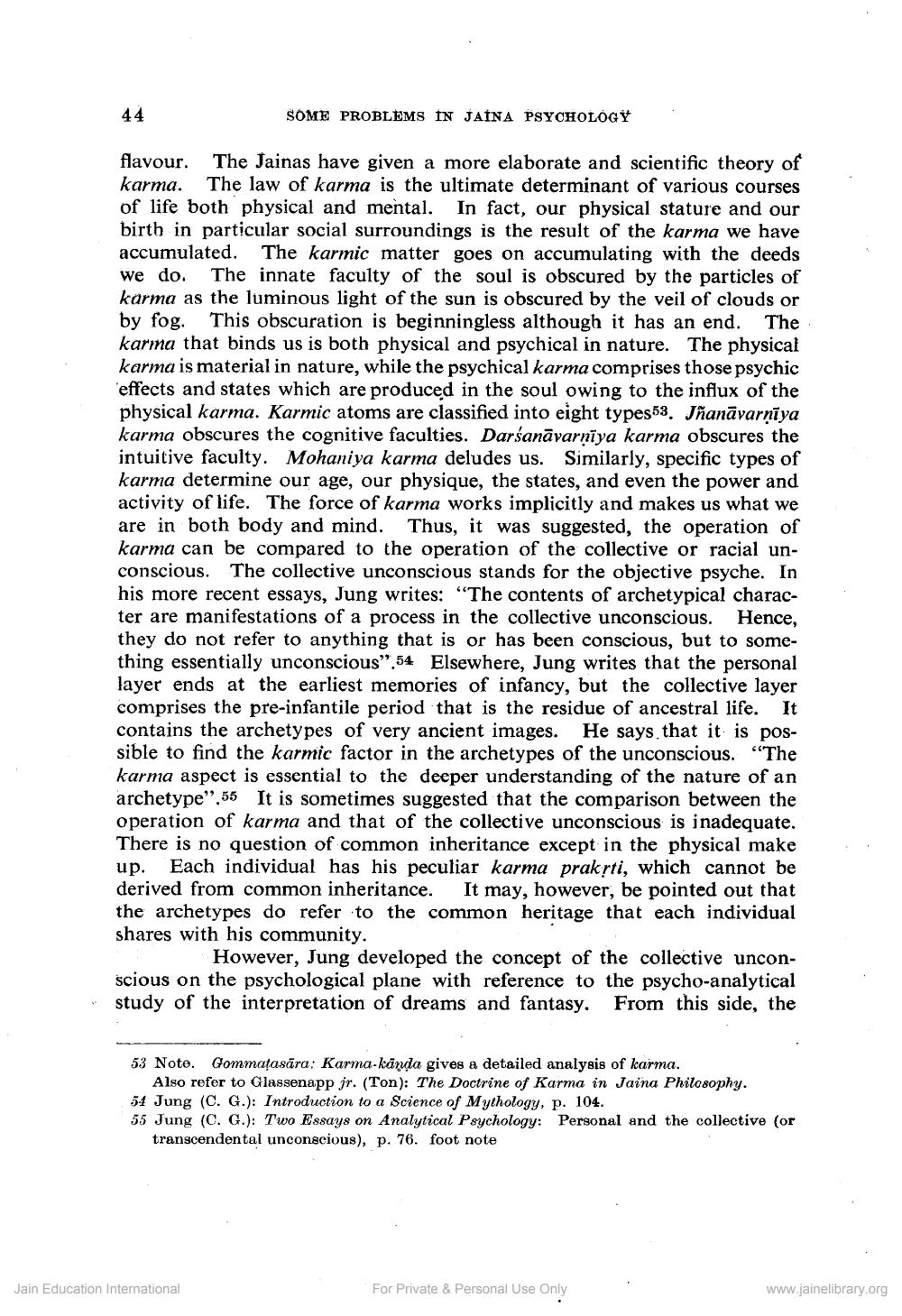________________
44
SOME PROBLEMS IN JAINA PSYCHOLOGY
flavour. The Jainas have given a more elaborate and scientific theory of karma. The law of karma is the ultimate determinant of various courses of life both physical and mental. In fact, our physical stature and our birth in particular social surroundings is the result of the karma we have accumulated. The karmic matter goes on accumulating with the deeds we do. The innate faculty of the soul is obscured by the particles of karma as the luminous light of the sun is obscured by the veil of clouds or by fog. This obscuration is beginningless although it has an end. The karma that binds us is both physical and psychical in nature. The physical karma is material in nature, while the psychical karma comprises those psychic effects and states which are produced in the soul owing to the influx of the physical karma. Karmic atoms are classified into eight types53. Jñanāvarnīya karma obscures the cognitive faculties. Darsanāvarnīya karma obscures the intuitive faculty. Mohaniya karma deludes us. Similarly, specific types of karma determine our age, our physique, the states, and even the power and activity of life. The force of karma works implicitly and makes us what we are in both body and mind. Thus, it was suggested, the operation of karma can be compared to the operation of the collective or racial unconscious. The collective unconscious stands for the objective psyche. In his more recent essays, Jung writes: “The contents of archetypical character are manifestations of a process in the collective unconscious. Hence, they do not refer to anything that is or has been conscious, but to something essentially unconscious” 54 Elsewhere, Jung writes that the personal layer ends at the earliest memories of infancy, but the collective layer comprises the pre-infantile period that is the residue of ancestral life. It contains the archetypes of very ancient images. He says that it is possible to find the karmic factor in the archetypes of the unconscious. “The karma aspect is essential to the deeper understanding of the nature of an archetype":55 It is sometimes suggested that the comparison between the operation of karma and that of the collective unconscious is inadequate. There is no question of common inheritance except in the physical make up. Each individual has his peculiar karma prakrti, which cannot be derived from common inheritance. It may, however, be pointed out that the archetypes do refer to the common heritage that each individual shares with his community.
However, Jung developed the concept of the collective unconscious on the psychological plane with reference to the psycho-analytical study of the interpretation of dreams and fantasy. From this side, the
53 Note. Gommatasara: Karma-kända gives a detailed analysis of karma.
Also refer to Glassenapp jr. (Ton): The Doctrine of Karma in Jaina Philosophy. 54 Jung (C. G.): Introduction to a Science of Mythology, p. 104. 55 Jung (C. G.): Two Essays on Analytical Psychology: Personal and the collective (or
transcendental unconscious), p. 76. foot note
Jain Education International
For Private & Personal Use Only
www.jainelibrary.org




